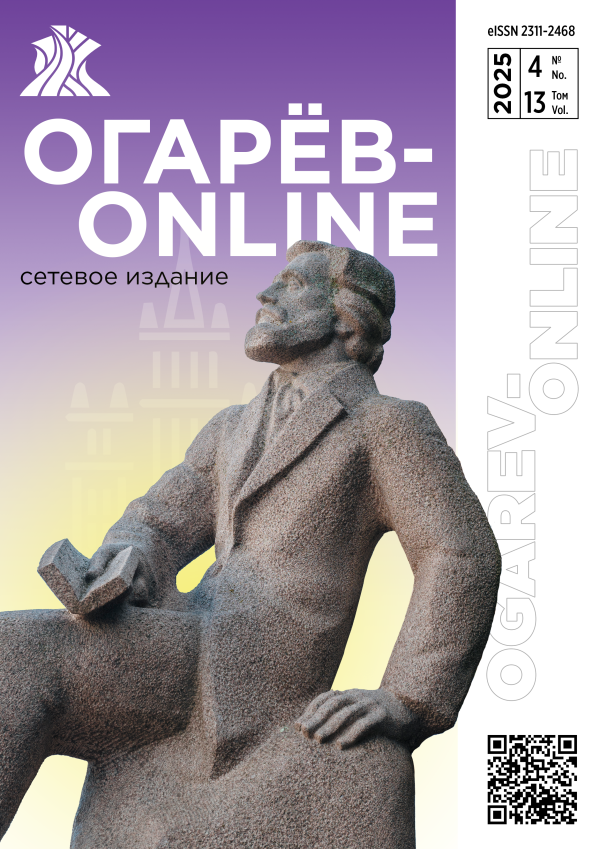Vol 10, No 16 (2022)
- Year: 2022
- Published: 25.12.2022
- Articles: 10
- URL: https://ogarev-online.ru/2311-2468/issue/view/17822
Full Issue
Lexical units with component dog as reflection of british ethnic mentality
Abstract
The article deals with the issue of British ethnic mentality and its reflection in the linguistic picture of the world. The authors analyze lexical units including the names of deferent breeds of dogs and come to the conclusion that these zoomorphic vocabulary has large proportion in the language of the English-speaking writers.
 2-8
2-8


Abbreviation functions in French online correspondence and comments
Abstract
The article is devoted to the study of abbreviations in French online correspondence and comments. The study shows that the phonetic-morphological method of word formation has widely spread to the sphere of youth slang, which tends to language economy and lexical emphasis.
 10-14
10-14


Lexical peculiarities of French and English online comments
Abstract
The ever-increasing popularity of social networks and instant messengers leads to the emergence of a new form of communication – Internet discourse. One of its genres is online comment, the lexical features of which in French and English are considered in this article.
 15-23
15-23


Typological features of phraseological units of English, French, Spanish languages
Abstract
The article presents a number of classifications based on English, French, Spanish idioms. The study is focused on the components and the meaning of idioms of respective languages. The research is based on the material of English-, French-, Spanish- Russian phraseological dictionaries.
 24-28
24-28


 29-35
29-35


 36-41
36-41


Verbal and non-verbal means of creating positive image of product in French advertising text
Abstract
The article is devoted to verbal and non-verbal means of creating a positive image of the advertised product in French advertising text. The study showed that this strategy is implemented through persuasiveness as a special form of communicative influence verbalized in creolized texts.
 42-46
42-46


Semantic classification of language means to express temporality category in English phraseological units
Abstract
According to the results of the analysis of lexical means of temporality category expression of English phraseological units, the semantic classification of temporality category expression means within literary source on the English language is given in the present article.
 47-52
47-52


Representing translator's personality: a communicative-functional approach
Abstract
The article is devoted to the study of the role of translator's personality in representing the cultural context of the translated text. The authors focus on the ability of the translator to choose the right translation techniques and the influence of the translator's personality on the translation. The article highlights the role of the translator not only as a linguistic mediator but an active participant of intercultural communication.
 53-58
53-58


 59-65
59-65

















